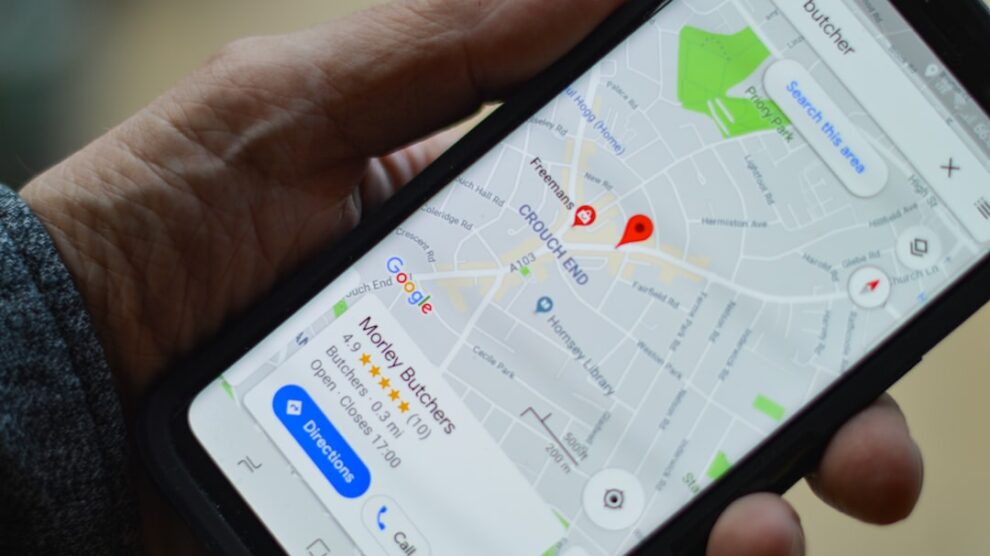Local SEO, or search engine optimization, is the process of optimizing a website to rank higher in local search results. It is an essential strategy for businesses with physical locations, as it helps them attract more local customers and increase their visibility in the local market. With the rise of mobile usage and the increasing importance of online search, local SEO has become crucial for businesses to stay competitive and thrive in their local communities.
Understanding the Importance of Local SEO for Your Business
Local SEO is crucial for businesses with physical locations because it helps them reach their target audience in their local area. According to Google, 46% of all searches have local intent, meaning that people are looking for products or services near them. If your business does not appear in the local search results, you are missing out on potential customers who are actively searching for what you offer.
Statistics and data further support the importance of local SEO. According to a study by BrightLocal, 97% of consumers use the internet to find local businesses, and 88% of consumers trust online reviews as much as personal recommendations. Additionally, 78% of location-based mobile searches result in an offline purchase within 24 hours. These statistics highlight the fact that consumers rely heavily on online search to find and choose local businesses, making local SEO a critical strategy for business success.
The Basics of Local SEO: What Every Business Owner Should Know
To understand how to optimize your website for local SEO, it is important to know the key components of this strategy. One of the most important aspects is keyword research. By identifying the keywords that your target audience is using when searching for products or services like yours, you can optimize your website content to rank higher in those searches.
On-page optimization is another crucial component of local SEO. This involves optimizing your website’s meta tags, headings, content, and URLs with relevant keywords and location information. It is also important to ensure that your website is mobile-friendly, as mobile searches are a significant factor in local SEO.
Local search algorithms determine the ranking of websites in local search results. These algorithms take into account various factors, such as relevance, distance, and prominence. Relevance refers to how well a business matches the user’s search query, while distance is the proximity of the business to the user’s location. Prominence refers to the popularity and reputation of the business. Understanding how these algorithms work can help you optimize your website and improve your local search rankings.
Optimizing Your Website for Local SEO: Tips and Best Practices
To optimize your website for local search, there are several tips and best practices you can follow. Firstly, make sure to include your location in your website’s meta tags, headings, and content. This will help search engines understand that your business is relevant to local searches.
Another tip is to create location-specific landing pages on your website. These pages should include information about your business’s location, contact details, and any other relevant information for local customers. This will help search engines understand that your business is relevant to specific locations.
Additionally, it is important to ensure that your website is mobile-friendly. Mobile searches account for a significant portion of local searches, so having a responsive website that looks good and functions well on mobile devices is crucial for local SEO.
Claiming and Optimizing Your Google My Business Listing
Google My Business is a free tool provided by Google that allows businesses to manage their online presence on Google Search and Google Maps. It is an essential platform for businesses looking to improve their local SEO.
To claim and optimize your Google My Business listing, start by creating an account or logging in to your existing Google account. Then, search for your business on Google Maps and click on the “Claim this business” button. Follow the prompts to verify your ownership of the business.
Once you have claimed your listing, it is important to optimize it by providing accurate and up-to-date information about your business. This includes your business name, address, phone number, website URL, and business hours. You can also add photos, videos, and posts to showcase your products or services.
Building Citations and Local Business Listings to Boost Local SEO

Citations are mentions of your business’s name, address, and phone number (NAP) on other websites. They are an important factor in local SEO because they help search engines verify the accuracy and legitimacy of your business information.
To build citations and local business listings, start by ensuring that your NAP information is consistent across all online platforms. This includes your website, social media profiles, online directories, and review sites. Inconsistent or incorrect NAP information can confuse search engines and negatively impact your local search rankings.
Next, submit your business information to relevant online directories and review sites. These platforms include Yelp, Yellow Pages, TripAdvisor, and industry-specific directories. Make sure to provide accurate and detailed information about your business to increase the chances of appearing in local search results.
Creating Location-Specific Content to Improve Local SEO
Location-specific content is important for local SEO because it helps search engines understand that your business is relevant to specific locations. This can include creating blog posts or articles that are specific to your local area or creating landing pages that target specific locations.
When creating location-specific content, make sure to include relevant keywords and location information in the title, headings, and content. This will help search engines understand the geographic relevance of your content.
Additionally, consider including local landmarks or attractions in your content to further establish your business’s connection to the local area. This can help attract local customers who are searching for businesses near these landmarks or attractions.
Leveraging Social Media for Local SEO: Strategies and Tactics
Social media can have a significant impact on local search rankings. By leveraging social media platforms, businesses can increase their online visibility, engage with their local audience, and improve their local SEO.
One strategy for using social media to improve local SEO is to optimize your social media profiles. This includes including your business’s name, address, and phone number (NAP) in your profile information. It is also important to provide a link to your website and include relevant keywords in your profile descriptions.
Another tactic is to actively engage with your local audience on social media. This can include responding to comments and messages, sharing local news or events, and showcasing your products or services. By building a strong presence on social media, you can increase brand awareness and attract more local customers.
Encouraging Customer Reviews and Managing Your Online Reputation
Customer reviews are an important factor in local SEO because they help establish the credibility and reputation of your business. Positive reviews can improve your local search rankings and attract more customers, while negative reviews can have the opposite effect.
To encourage customer reviews, start by providing excellent products or services and delivering exceptional customer service. Satisfied customers are more likely to leave positive reviews. You can also ask customers for reviews directly, either in person or through email or social media.
Managing your online reputation is also crucial for local SEO. This involves monitoring and responding to customer reviews, both positive and negative. Responding to reviews shows that you value customer feedback and are committed to providing excellent service. It is important to address any negative reviews promptly and professionally, offering solutions or apologies if necessary.
Measuring the Success of Your Local SEO Efforts: Key Metrics to Track
To measure the success of your local SEO efforts, it is important to track key metrics that indicate the performance of your website and online presence.
One key metric to track is organic search traffic. This refers to the number of visitors that come to your website through organic search results. By tracking this metric over time, you can see if your local SEO efforts are driving more traffic to your website.
Another metric to track is the number of conversions or leads generated from local search. This can include phone calls, form submissions, or online purchases. By tracking these conversions, you can determine the effectiveness of your local SEO strategies in driving customer actions.
Additionally, it is important to track your website’s search engine rankings for relevant keywords. This will give you insight into how well your website is performing in local search results and whether your optimization efforts are paying off.
Hiring a Local SEO Expert: When and How to Get Professional Help
While it is possible to implement local SEO strategies on your own, there may come a point where it is necessary to hire a local SEO expert. This could be due to lack of time, expertise, or resources to effectively manage and optimize your online presence.
When considering hiring a local SEO expert, it is important to do thorough research and find someone with a proven track record of success in local SEO. Look for testimonials or case studies that demonstrate their ability to improve local search rankings and drive results for businesses similar to yours.
It is also important to have clear goals and expectations when working with a local SEO expert. Communicate your business objectives and discuss how they plan to achieve them through their strategies and tactics. Regular communication and reporting are also important to ensure that you are kept informed of the progress and results of their efforts.
In conclusion, local SEO is crucial for businesses with physical locations as it helps them attract more local customers and increase their visibility in the local market. By optimizing their website for local search, businesses can improve their rankings in local search results and attract more targeted traffic.
Implementing local SEO strategies involves understanding the key components of local SEO, optimizing your website and online presence, building citations and local business listings, creating location-specific content, leveraging social media, encouraging customer reviews, and measuring the success of your efforts.
While it is possible to implement local SEO strategies on your own, there may come a point where it is necessary to hire a local SEO expert to ensure the best results. By following these strategies and tactics, businesses can improve their local search rankings and drive more customers to their physical locations.
FAQs
What is Local SEO?
Local SEO (Search Engine Optimization) is the process of optimizing a website to rank higher in local search results. It involves optimizing a website’s content, keywords, and other factors to make it more visible to potential customers in a specific geographic area.
Why is Local SEO important for businesses?
Local SEO is important for businesses because it helps them reach potential customers in their local area. By optimizing their website for local search, businesses can increase their visibility in search results, attract more local customers, and ultimately increase their revenue.
What are some key factors that affect Local SEO?
Some key factors that affect Local SEO include the business’s website content, keywords, online reviews, local listings, and social media presence. It’s important for businesses to optimize these factors to improve their local search rankings.
How can businesses improve their Local SEO?
Businesses can improve their Local SEO by optimizing their website content and keywords for local search, building a strong online reputation through positive reviews, claiming and optimizing their local listings on search engines and directories, and maintaining an active social media presence.
What are some common mistakes businesses make with Local SEO?
Some common mistakes businesses make with Local SEO include not optimizing their website for local search, neglecting their online reputation and reviews, failing to claim and optimize their local listings, and not maintaining an active social media presence. These mistakes can hurt a business’s local search rankings and make it harder for them to attract local customers.









Add Comment